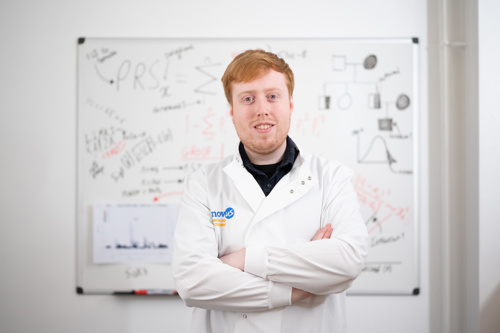
Study
Every patient’s cancer is unique to them and currently only cancer stage is used in assessing patient prognosis. There is growing evidence to suggest that not only the genetic mutations found in an individual’s tumour but also the genetic variants they were born with may have considerable effects on how a patient’s cancer will progress. By studying these inherited genetic variants, Chris hoped to help clinicians better understand patient prognosis as well as the genes and biological pathways involved in bowel cancer progression.
Results
By adjusting the statistical tests for known clinical, genetic and lifestyle factors as well as grouping patients by tumour location and mutational background Chris has identified genetic variants, genes and pathways that are predictive of how long someone may survive with advanced stage bowel cancer. Examples include the genes ERBB4, PI4K2B and RASAL2.
Impact
Personalised medicine using inherited genetics allows for a more patient-centric approach to treatment. Although these genes and genetic variants are unlikely to be used individually in the clinic due to their small effects on survival, their inclusion in more complex prognostic algorithms could be possible in the future, especially with the recent advancements in big data and AI in medicine. This research has also highlighted some novel genes and biological pathways that other researchers may research further in the future.
The findings from this work continue to be submitted for publication in scientific journals to help inform other researchers.
Chris told us: “My studentship, scientific publications and the research presented in my thesis titled ‘Identifying genetic biomarkers of survival for colorectal cancer’ would not have been possible without the funding made available by Tenovus. Over the last few years, I have learnt an incredible amount and grown a lot as a scientist. I hope to use these skills in future to make a difference in the lives of patients suffering from cancer and other debilitating diseases.”
